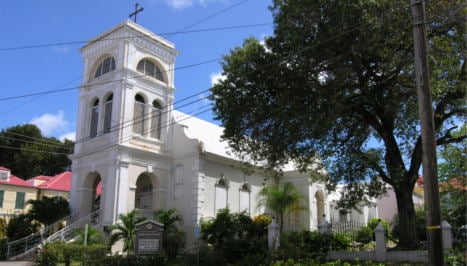NORWAY
Norway asked to pay up for slave-owning past
A commission set up by countries in the Caribbean announced on Tuesday that it planned to sue Norway for its involvement in plantation slavery from the 17th to the 19th century.
Published: 12 December 2013 10:08 CET

The Lord God of Saboath Church, a Danish Lutheran church consecrated in Christiansted, St.Croix, on 27 May 1753 when the island was run by Denmark-Norway - Source: Lord God of Sabaoth Lutheran Church
Norway, as part of a united kingdom with Denmark, established colonies on the islands of St Thomas, St John and St Croix in the US Virgin Islands. In 1754, no fewer than 14,000 of the islands' 16,000 people were slaves.
"For over 400 years Africans were classified in law as non-human, chattel, property and real estate," Sir Hilary Beckles, the historian who leads the Caribbean Community Reparations Commission, said in a statement. "This history has inflicted massive psychological damage upon African descendants. Only a reparatory dialogue can begin the process of healing and repair."
The commission on Tuesday officially expanded the list of countries it was targeting from Britain, France and the Netherlands to include Spain, Portugal, Denmark, Norway and Sweden. Beckles said that the group was also researching possible claims against Switzerland and Russia.
The commission has hired Leigh Day, the British law firm which fought successfully for compensation for Kenyans tortured by the British colonial government during the 1960s Mau Mau rebellion.
Richard Stein, one of the firm's lawyers, said on Tuesday that if the firm could not reach an out-of-court settlement, it would take the fight to the International Court of Justice, the United Nations' highest judicial organ.
Denmark and Norway took control of St. Thomas, St. John and St. Croix in 1672, 1718 and 1733 respectively, with Norway losing its stake with the dissolution of the joint kingdom with Denmark in 1814 and Denmark selling the islands to the US for $25m in 1917.
In November, Mark Simmonds, Britain's minister for the Caribbean, expressed doubt about the claims.
"Do I think that we are in a position where we can financially offer compensation for an event two, three, four hundred years ago? No, I don't," he told the Jamaica Observer.
St. Vincent Prime Minister Ralph Gonsalves, who next year takes over the presidency of the Caribbean Community has pledged to pursue reparations, calling the struggle the "fundamental, defining matter of our age."
Url copied to clipboard!


 Please whitelist us to continue reading.
Please whitelist us to continue reading.
Member comments